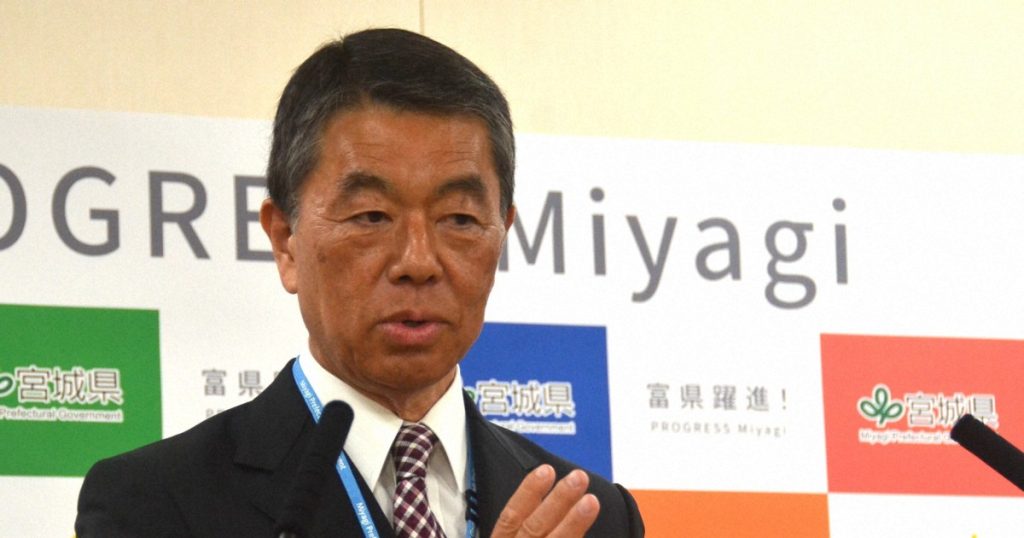Listen to the article
In a significant move addressing electoral misinformation, Miyagi Governor Yoshihiro Murai has directed senior prefectural officials to explore establishing an official fact-checking system for election campaigns. The announcement came during a regular news conference on October 27, following his recent re-election to a sixth term amid concerns about false information circulating on social media platforms.
The gubernatorial election on October 26 saw Murai secure another term, but the campaign was marred by widespread misinformation. The governor expressed frustration over the dissemination of false and unverified claims, acknowledging that such challenges exceeded what individual campaign offices could effectively counter.
“When candidates raise concerns about potentially false information, the prefecture will investigate thoroughly from a neutral position,” Murai explained. “If issues are found, they will be reported to the police. I want to consider whether we can implement these measures effectively.”
The proposed fact-checking initiative would involve collaboration between prefectural authorities, local police, and legal professionals. Officials plan to assess the feasibility of implementing this system for both national and local elections held within Miyagi Prefecture, potentially creating a model that could influence electoral processes nationwide.
During his recent campaign, Murai became a target of coordinated misinformation efforts, particularly on the social media platform X (formerly Twitter). Users shared images falsely attributing “14 misdeeds” to the governor, including allegations that he welcomed environmentally controversial mega-solar projects and outsourced water utility operations to foreign companies.
These baseless claims forced the incumbent to divert valuable campaign time toward refuting the misinformation during street speeches. The situation became serious enough that Murai publicly suggested on his social media accounts that legal action might be necessary against those spreading false information.
The initiative represents one of Japan’s first formal government attempts to systematically combat election-related misinformation. While private fact-checking organizations exist in many countries, including Japan, having a prefectural government establish an official electoral fact-checking mechanism would mark a significant institutional response to the growing challenge of digital misinformation.
Electoral misinformation has become increasingly problematic worldwide as social media platforms facilitate rapid information sharing without adequate verification mechanisms. Traditional campaign regulations in many jurisdictions, including Japan, were established before the digital age and often lack provisions for addressing online misinformation effectively.
Political analysts note that Miyagi’s approach, if implemented, could set a precedent for other Japanese prefectures and potentially influence national policy regarding electoral integrity. However, the initiative also raises questions about how to ensure the impartiality of government-led fact-checking operations and define the boundaries between false information and protected political speech.
The Japan Federation of Bar Associations has previously expressed concern about electoral misinformation but emphasized that any countermeasures must balance protecting electoral integrity with preserving freedom of expression.
Miyagi Prefecture, located in northeastern Japan’s Tohoku region, continues to recover from the devastating 2011 earthquake and tsunami. Murai has served as governor throughout this recovery period, making him a well-known political figure in the region.
The prefectural government is expected to convene a study group in the coming months to develop specific proposals for the fact-checking system before the next scheduled elections.
Fact Checker
Verify the accuracy of this article using The Disinformation Commission analysis and real-time sources.




8 Comments
Combating electoral misinformation is a growing challenge globally. I’m glad to see the Miyagi government taking proactive steps to investigate false claims and work with authorities to address the issue. Transparency and accountability are crucial for fair elections.
Agreed. Establishing a neutral fact-checking process could go a long way in restoring public trust and ensuring the integrity of the democratic process.
The rise of online misinformation is a concerning trend that can undermine the integrity of elections. I’m encouraged to see the Miyagi government taking proactive steps to address this issue through a fact-checking service. Fact-based information is essential for voters to make informed decisions.
Online misinformation can have serious consequences for the electoral process. I hope the proposed collaboration between local officials, police, and legal experts in Miyagi will be effective in identifying and addressing false claims. Fact-checking is an important safeguard for democracy.
Fact-checking services can play a vital role in combating electoral misinformation. I’m interested to see how the proposed system in Miyagi will work in practice and what lessons can be learned for other jurisdictions facing similar challenges. Transparency and accountability are key to maintaining trust in the democratic process.
Fact-checking services are a valuable tool to combat the spread of misinformation, especially during elections. It’s good to see the Miyagi government taking this initiative seriously and exploring ways to implement it effectively. Transparency and accountability are crucial for the democratic process.
Establishing an official fact-checking system for election campaigns is a commendable move by the Miyagi government. Verifying claims and information is crucial in a digital age where misinformation can spread rapidly. I hope this initiative serves as a model for other regions to follow.
This is an interesting approach to address online misinformation during elections. Fact-checking services can help voters make informed decisions by verifying claims and information. I’m curious to see how effective this initiative will be in Miyagi.